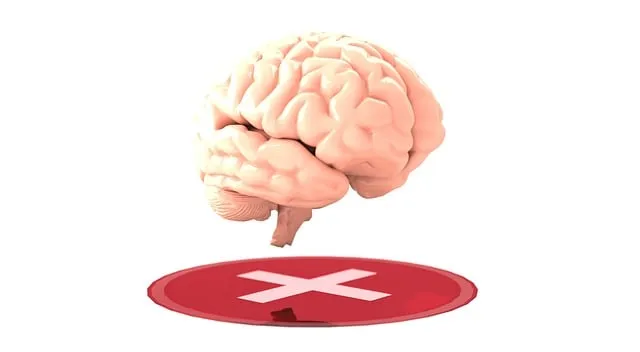Trauma can profoundly affect an individual's mental well-being, and when left unaddressed, it can lead to persistent mental health challenges. Organizations like Stress Management Workshops (SMW) in Longmont provide specialized trauma-informed care through evidence-based programs, helping Kaiser members manage stress and achieve mental wellness. Kaiser Permanente Longmont offers a comprehensive range of mental health services, including therapy, counseling, mindfulness practices, and self-care techniques, addressing both common disorders and trauma. This robust support system prioritizes stigma reduction, holistic healing, and personalized care, ensuring individuals have access to the tools needed for effective stress management and recovery.
Trauma is a profound and pervasive experience with lasting effects on individuals and communities. In Longmont, understanding trauma’s impact is crucial for accessing effective support. This article delves into the provision of trauma support services, focusing on Kaiser’s mental health offerings in the region. We examine the local landscape and assess Kaiser’s role, exploring ways to enhance trauma support for those in need. Key questions include: does Kaiser offer mental health services in Longmont, and how can we improve accessibility?
- Understanding Trauma and Its Impact
- Kaiser's Mental Health Services: An Overview
- Longmont's Trauma Support Landscape
- Assessing Kaiser's Offerings in Longmont
- Enhancing Trauma Support: What Can Be Done?
Understanding Trauma and Its Impact

Trauma is a profound and complex experience that can leave lasting effects on an individual’s mental and emotional well-being. It’s important to understand that trauma doesn’t discriminate; it can affect people from all walks of life, regardless of age, background, or circumstances. When individuals experience traumatic events, their bodies often respond with intense stress reactions, which over time can lead to significant mental health challenges if left unaddressed. This is where specialized support services become indispensable.
In Longmont, organizations like the Stress Management Workshops (SMW) play a pivotal role in offering trauma-informed care and facilitating emotional healing processes. SMW provides resources and programs designed to help individuals navigate the aftermath of traumatic experiences. By participating in these workshops, Kaiser members in the area can access evidence-based practices for managing stress and promoting mental wellness. This proactive approach ensures that those affected by trauma have tools and support systems available to them, fostering a path towards recovery and improved quality of life.
Kaiser's Mental Health Services: An Overview

Kaiser is a well-known healthcare provider that offers comprehensive mental health services across various locations, including Longmont. Their approach to supporting individuals with mental health challenges is multifaceted and designed to meet diverse needs. Kaiser’s Mental Health Services encompass a wide range of programs aimed at promoting mental wellness and providing effective treatment options.
The organization offers specialized care for trauma, anxiety, depression, and other common mental health disorders. One unique aspect of their services is the Mental Wellness Podcast Series Production, which provides accessible resources and insights to help individuals navigate stress management and explore various Stress Reduction Methods. Through these podcasts, Kaiser aims to destigmatize mental health conversations while offering practical guidance for maintaining a healthy mind. Additionally, they facilitate group therapy sessions, individual counseling, and community outreach programs, ensuring that support is tailored to the specific requirements of each patient.
Longmont's Trauma Support Landscape

Longmont’s trauma support landscape is rich with resources designed to cater to a diverse range of needs. The city boasts several organizations dedicated to providing mental health services, many of which offer specialized care for those who have experienced traumatic events. Among them, Kaiser Permanente stands out as a prominent provider, offering comprehensive mental health support that includes therapy and counseling services tailored to individuals’ unique situations.
For those seeking alternative approaches, compassion cultivation practices and self-care techniques are also widely available. Local initiatives focus on fostering resilience through mindfulness and self-esteem improvement programs, ensuring residents have access to holistic trauma support. These efforts create a supportive environment where individuals can heal and rebuild their lives, reflecting the community’s commitment to addressing trauma with both professionalism and compassion.
Assessing Kaiser's Offerings in Longmont

In Longmont, Kaiser’s offerings in mental health services are notable and extensive. The healthcare provider recognizes the importance of addressing mental illness stigma reduction efforts within the community and has implemented various programs to support individuals struggling with psychological challenges. Their commitment extends to crisis intervention guidance, ensuring that residents have access to immediate assistance during times of distress.
Beyond direct interventions, Kaiser encourages self-care routine development for better mental health. By promoting proactive strategies, they empower individuals to manage their well-being effectively. These initiatives reflect a holistic approach, aiming to create a supportive environment where Longmont folks can seek and receive the care they need without the barriers often associated with mental illness stigma.
Enhancing Trauma Support: What Can Be Done?

Trauma support services are vital for communities to ensure folks receive the care they need after traumatic events. Organizations like Kaiser Permanente Longmont play a crucial role in providing mental health services, offering specialized programs and resources tailored to address trauma’s profound impact.
Beyond traditional therapy, integrating self-awareness exercises and self-care practices into support systems can significantly enhance recovery. Techniques such as mindfulness meditation, yoga, and journaling encourage individuals to develop coping mechanisms, manage stress reduction methods, and cultivate a sense of resilience. By combining these evidence-based practices with professional care, trauma support services can offer holistic healing and help folks regain control of their lives.
In conclusion, while Longmont benefits from Kaiser’s presence with its mental health services, there is a clear need for enhanced trauma support. Assessing their offerings reveals both strengths and areas for improvement. By prioritizing additional resources and specialized programs tailored to trauma survivors, Kaiser can better serve the community in Longmont and ensure that individuals receiving care experience holistic healing. This includes expanding access to trauma-informed therapies and building partnerships with local support organizations to create a more comprehensive and responsive network. Such initiatives would significantly contribute to improving mental health outcomes for those affected by traumatic events.






